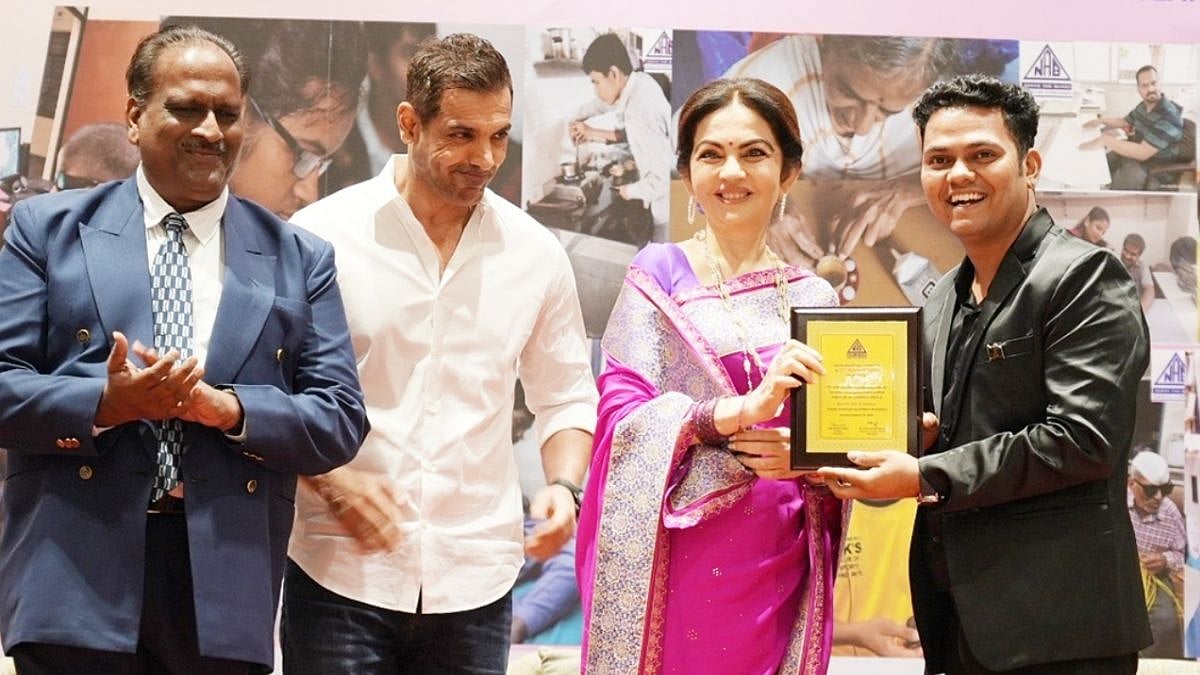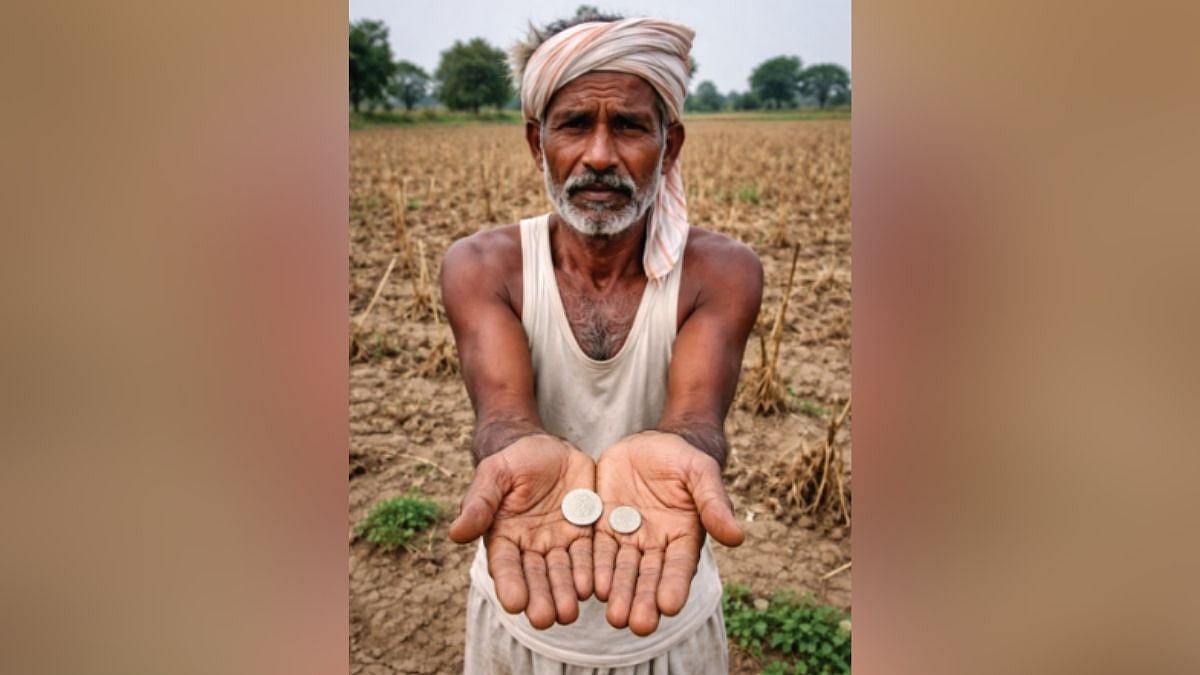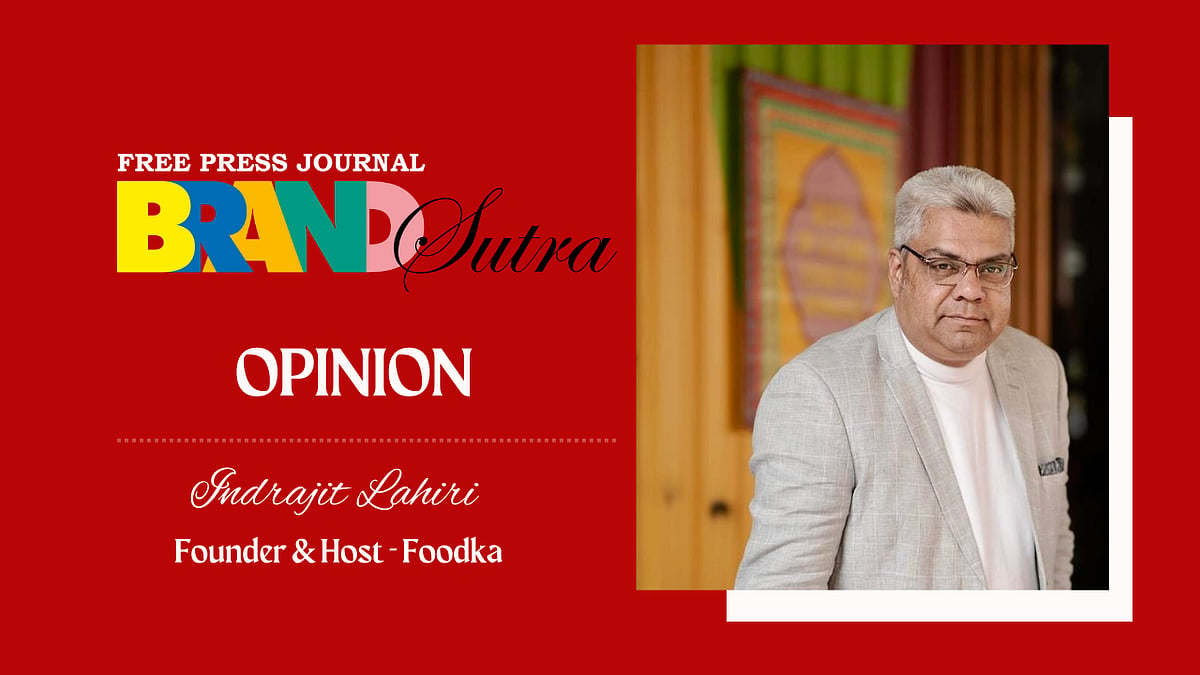On January 11, 2024, artisanal bakery brand The Baker’s Dozen (TBD) was in the news for raising Rs.33 cr in a fresh round of funding, led by Wipro Consumer Care - Ventures, existing investor Fireside Ventures, Mirabilis Investment Trust and She Capital.
Founded by Aditi Handa and her business and life partner Sneh Jain in 2013, TBD claims to be the largest in its space in India, making breads, cakes, cookies, crackers and premixes using natural ingredients.
The brand is present across 50 cities and 3,000 touch points in India, retailing from 50 of its own stores and more than 600 modern and general trade stores. Yet 75 pc of its sales are from three metros. It is available on e-commerce and quick commerce channels that contribute 70 to 75 pc of sales today, says Co-founder and MD Jain, in conversation with BrandSutra. He expects the balance to stabilise at 50-50 soon. The brand has just made its foray into modern retail chains, he explains.
Understandably, the thrust will be on deepening the brand presence in more cities. The brand will also expand its product portfolio, and build on its successful foray into the Middle East in the near future. While it expands it will do so profitably, underlines Jain, who credits the growth from just over Rs.6 cr to Rs.80 cr (est. ARR, FY24) to packaging innovation that has allowed for increased shelf life for the products that come from the 35k sq. ft. facility in Ahmedabad.
Congratulations on the round of funding. There seems to be a very conscious focus on product and leaving distribution to the ecosystem?
We realised that we can't match the delivery chops or the timelines of the ecosystem. You just can't beat a 10-minute or even a half an hour delivery as a single brand. So then why compete in that space? It's also never going to make financial sense for a single brand. You're not going to get the unit economics. So that's where we consciously withdrew from doing direct deliveries. This is a very neighborhood kind of category. You need it quickly.
If you see the major bigger players, you can't order Britannia online from their website. That's where we also felt that let's concentrate on what we know best and let the fulfilment happen through the partner.
The top three cities in terms of sales are Mumbai, Delhi, Bengaluru. You're present in more than 50 cities is what your website says. And the top three cities contribute more than 75 pc of the sales. For a ten year old brand, is that normal?
We believe in going deep into a city. Even for the best cake out there, you wouldn't go beyond the 100, 200, 500 metres radius of your house. While we partner with an Instamart or a Blinkit, they can take it to many cities. They'll take a product in Bengaluru to, let's say, Coimbatore or Mysore. But do I call that significant presence at the brand's end? No. So while we are technically present across, where we are deep as a brand are the top three cities of Mumbai, Bengaluru and Delhi. And that's also the reason why they contribute 75 pc of our sales.
That's where one of the big pushes of the fundraise also is. Almost 40 to 50 pc of the quantum is towards building that deep penetration in the top 15 to 20 cities. I need to build that in a Hyderabad or Chennai, Kolkata or for that matter Jaipur, Lucknow, Chandigarh, Coimbatore, Vizag.
In these top 15 to 20 cities, we will build a deep rooted presence in our TG’s neighbourhood store, through quick commerce, e-commerce, modern trade.
Will you need to expand manufacturing capabilities as you expand deeper into multiple geographies?
We are the only ones in India to use modified atmosphere packaging in bakery products. It's the same technology that gets used in paneer. So Amul uses it, Mother Dairy uses it. In bakery, no one had done this because it requires recipe changes and innovation. It took us one and a half years to get it right. This increases shelf life significantly without the need of preservatives. So our shelf life today for cakes is three months. For breads it is seven days. For cookies it is nine months. For crackers it is 12 months. Our central manufacturing is one hour from Ahmedabad, where we have a 35,000 sq. ft facility. From there we are able to send it across.
So what it needs for us to establish distribution is those partner tie ups. I need distributor tie ups. I need a tie up where I'm listed with Reliance, with More, with Star Bazaar. So that will take time and it takes some upfront investment as a brand.
But you are already present in some of these stores, like Reliance and DMart…
So over the last three to five months we have started getting a presence over there. One part is where you get listed, the next step is where you are able to significantly push secondary sales at the store. You need to start looking at having your own promoters, merchandisers, feet on street. You need to do some gondola branding, you need to be out there spreading the message as a new brand.
Tell us about the start and how you forayed into offline and online, which contributes the majority of sales now.
We started in 2013. I did my MBA from IIM Ahmedabad. After that I was working with McKinsey in consulting. I did that for around two and a half years. I was very clear that I wanted to start something. Aditi (Handa, Co-founder and Head Chef) and I started The Baker’s Dozen together. We are husband and wife. Right at the start, we felt one of us should have the technical expertise to make the product. So after we decided on starting a bakery brand, Aditi went to Paris and before that to the International Culinary Centre (formerly French Culinary Institute) in New York, to study. She studied baking and patisserie from there.
We started off in Bombay, with a 1,000 sq. ft. place in Wadala. We started with what I would say would have been India's first high end store focused only on bread in Prabhadevi, near Siddhivinayak temple. That store was initially selling only 13 types of bread.
We were offline first and then expanded to online. After one or two years, we expanded our own retail presence. We had stores in Bandra, in Lokhandwala, in Kemps Corner. When we had customers from places like Powai coming and buying from our Prabhadevi store once a week, we started partnering with modern trade to be closer to them. But these were premium modern trade partners like Nature's Basket and Food Hall. That worked very well and we started expanding.
We went online around 2015-16 is when Big Basket started. We were one of the first brands to get listed over there. Omnichannel for us is more than a conscious strategy. It has always been a need of the business. From our discussions we know that a lot of customers buy us through multiple channels. The same customer would have added our products when buying groceries from Big Basket. S’he tops it up at a neighbourhood store a few days later.
The customer loyalty is to the product, not much to the channel. We have always been omnichannel. We have always strongly believed in offline. In the last three years, especially with quick commerce, online has become a new distribution channel for brands like us. Today, almost 70 to 75 pc of our sales come through online platforms.
But that is also an outcome of us having not tapped into offline significantly. So it's not that the opportunity is not there. That's where we need to now focus.
So what do you see as the optimal split between offline and online sales for TBD?
I would say this will become 50-50 by March 2025. While online, and especially quick commerce in a way, has started replacing your neighbourhood store, there is a play for offline. I think a 50-50 will be a healthy split.
Given that you are a premium brand, will the offline presence be more skewed towards modern trade than general?
There would be at least 50 to 100 premium stores in a large city, where the upper middle class and the upper class go to shop. Are they better targets for me than even a Reliance or a DMart or a More? Definitely, yes. A Reliance or a More helps in scale. We have right now, for example, just closed a deal with Reliance whereby we'll be in 300 to 400 of their stores.
Now, that kind of number takes time in premium. So when we say we want to now go aggressively into more cities, we would want to be in the Reliance Smart stores, and also in the top 20, 30 or 50 premium general trade stores.
One reason people buy premium bread is that it is fresh, with no preservatives. Do you see some of the premium for TBD getting affected in the consumer’s mind because it's made in Ahmedabad and lasts seven days?
There will always be some customers who are okay with making that trip to a store everyday or every second day to buy the fresh bread in the morning. There's a reason why you'll have a line in front of, let's say, Kayani's Bakery in Pune or a Flurys in Kolkata. Now, there are these age-old city bakery brands. Those customers might be wanting to buy bread from there, but might want to buy the cake and cookies and the rest from us.
Bakery in India operates in two parts. There is the Britannia and Harvest Gold of the world, where there's no differentiation on the product. The differentiation is in distribution. If I go to a retail store to buy normal sliced bread and Britannia is not available, I will pick up Harvest Gold.
Then you have the other end, which is your Old Madras Baking company. You will plan to reach in the morning at 8 am so that you get the fresh bread. The problem is that it is not scalable. We are saying, can we provide you that quality of an Old Madras Baking Company or a Kayani’s, but at the distribution of a Britannia or even one fifth of that distribution?
So that's the play. We want to provide an artisanal quality product with the distribution of FMCG. We call ourselves an FMCG bakery brand.
How does TBD compare on pricing? Are breads the largest selling?
Breads are around 40 pc of the portfolio now. Sponge cakes are 30 pc, growing very well. Cookies are around 15 to 20 pc. Again, it is a recent launch, growing well. And then you have crackers and other products which add 10 to 15 pc. From a price point of view we will be comparable or cheaper than your local artisanal favourites. But to a Britannia we would be on an average of 1.5 to 2x premium.
How is it possible that you are comparable or cheaper to the local artisanal option, despite the transportation, the logistics?
It's a matter of what kind of margins and pricing you're looking at as compared to the scale that you're envisaging. If I'm selling a local product at a local bakery, I know I’m going to get sold out every day. So, pricing is almost an outcome of what the customer is willing to pay. But on our end, we need a more standardised pricing because the same product has to be competitive even in a Reliance. In some of our premium products, we have actually priced it for people to try it. But yes, on sliced bread we would be at a 1.5 to 2x premium over a Britannia or a Harvest Gold.
Is there any difference between what sells online on quick commerce, ecommerce and what sells in the store?
For us, a quick commerce platform and a Nature's Basket has the exact same target audience and a Flipkart and a Reliance the same TG. Rather than cut it online vs offline, it's almost like you cut it as premium and slightly mass. So a Nature's Basket customer will choose the same kind of assortment that a quick commerce customer will choose. And a Reliance customer will choose the same assortment that a Flipkart customer will choose.
Is there a difference then in the ticket sizes as well?
Yes, it would be. There is a channel dynamic. Quick commerce by definition is a small ticket size - multiple purchase concept. An average order value would be around Rs.150 to 200 for us. At a Nature's Basket it might be even Rs.300 or Rs.500. Because once you've made the trek to a store, you don't want to miss out on something.
Rs.45 cr in FY 23, Rs.80 cr target for FY 2024. FY 24 is almost here. Where is this growth coming from?
Cookies, crackers, etc. have started growing well for us. The second thing is some of the newer partnerships. We were not present in Reliance, DMart or More earlier. All of that has happened in the last three to six months. What we are looking at, especially for this Jan-March quarter, is a lot of expansion in some of the relatively newer cities for us. That would be your Chennai, Hyderabad, Kolkata, then the tier 1 cities. We are already starting on some of those distributor tie ups and pushing the product.
From 2013 to till last year when you were at Rs.45 crore. What have been the milestones? When did you hit the first Rs.10 cr?
From 2013 till almost 2019, we were like your local bakery in a way. We were playing with a low shelf life product – breads was one day shelf life, cakes was two days. We were baking locally so we could only serve Mumbai and Pune.
Until 2019, we were at a Rs.6 or 6.5 cr mark. That's when we decided to scale up through the shelf life expansion and innovation on packaging technology. Since then we have almost doubled every year, on average. We grew from Rs.6 cr to over Rs.30 cr over the period from 2019 to 2022, while being EBITDA positive. We were doubling, while the economics was intact.
We were still a bootstrapped brand. We took our first investment in June 2022. We strongly believe in being a sustainable, profitable brand. I didn't want to fundraise and spend money on something where we are not confident about the foundations. If I had fundraised when we were Rs.6 cr and doing a very localised kind of concept, we would have perhaps burned through the money. We raised funds once we believed that we have a national play, potentially an international play too. And we now need money for putting it in the right parts of the business – distribution, growth, marketing, brand building, team building. That's when we felt we should go ahead for the raise.
So ’22 onwards, once you raised the money and obviously went into expansion mode, could we say the company is in the red because it's an investment mode?
We just went in the red for some time, for about three months. We are almost near breakeven. I think by March-April 2024 is when we are targeting to be comfortably EBITDA positive. And we will stay that way in spite of the fundraise.
A fundraise should not be a way to sustain the business. It should be a way to capture growth opportunities which you would otherwise not be able to.
The innovation, which increased the packaging, the shelf life, which is really the game changer for the company – how irreplicable is that?
It's a technology which is widely available right now. The trick is in two parts. One is the recipes. And that's where having a chef as a Co-founder, we are able to work on the product much better. One is to ensure that you get the same mouth feel, the taste, the texture. We are subjecting the product to a slight vacuum. Bakery products have air inside them, that’s how they get their fluffy nature. Now, how do you ensure that you subject it to this packaging technology, but still retain that fluffiness, that softness, that moisture? That's the trick which needs to be solved.
The other part is, can you as a brand absorb that increased cost? Today a Britannia will not move to this packaging because their margins are so cutthroat. So they can't change their packaging cost by 50 pc. It’s about whether you as a brand can command that premium which allows you to do this innovation.
Do you foresee more brands entering the artisanal bakery products space?
This space is ripe for people to enter. And I would say the more people enter the better for us. I'll give you a small example. We had croissants from day one, 2013 onwards. People did not understand what a croissant was. People had only known them at five star hotel breakfast buffets. Incidentally, Britannia launched croissants a year and a half or two years back. Britannia was launching a croissant and they were calling it a croissant (not a bun maska or a stuffed bread). That means people are experimenting more and more and they wanted to try better things.
Today there is genuine awareness about what whole wheat means. People don't just trust a “100 pc whole wheat” claim. People are questioning if preservatives are required. This industry has historically always been mostly dominated by small scale, local, unorganised players. Today if you ask our TG they may not be comfortable going to a store and buying a bakery product available loose in those cans. That's how bakery products have been sold historically. People would want a proper packaged, branded product which assures them hygiene, which assures them some level of quality.
So the more the players, the movement just expands. It's a market expansion game. It's not that we are eating from each other, not a play where the market is already saturated. Bakery is an almost Rs.70,000 cr market in India (all included).
Ten years back there may have been a feeling that if bread is consumed at home that means the daily cooking was skipped for some reason. That has fundamentally changed. Today it’s no longer unusual for a child to take a sandwich in her tiffin. A lot of people are okay with consuming not only bread but bakery products right across. Cakes are a very interesting example. You wouldn't believe how many people are gifting sponge cakes during Diwali.

People are bored of chocolates and dry fruits. We have been gifting dry fruits to each other for the last 50 years. What happens is I'll gift you dry fruits. You will gift the same pack going forward to somebody else. Right now, you get a good sponge cake which gives you a feel of a fresh product but has shelf life. Those alternatives are coming up.
Within breads, what would be the share of the artisanal breads, whether local or national?
Sliced breads would easily be around 80 to 85 pc of the market, or maybe higher. We do artisanal breads but we also do sliced bread – you cannot do breads without doing sliced breads. Our call is very simple. For whatever product we will provide as TBD, whether it is sliced breads or even pao for that matter, it will be better than a generally available mass product.
We will not say we will only do premium sourdoughs and we will not do your local breads. I genuinely believe that our customer wants to have better products all across, which is why they're willing to pay 1.5 to 2x.
Within sliced breads, mass players like Britannia, Harvest Gold, would be almost 90 to 95 pc of the market. We are just starting to create a dent. From a scope point of view, it's almost unparalleled. For a player like Britannia, I think only breads would be a Rs.1,000 cr business. It's a huge ocean, frankly.
The Baker’s Dozen’s journey will now be a little different, with deeper expansion into more cities. What is the marketing roadmap that you have?
For us, marketing means the product and the quality of the ingredients is the centre of the message. Let me be clear that we are not talking of being a healthy brand. We will be authentic to the recipe. We will use authentic ingredients. If by default that makes it healthier for you, that's a bonus. But I will not compromise on the taste or the mouthfeel for that.
Our banana walnut cake is our highest selling cake. We use Kashmiri walnuts. We use real ripe bananas. We don't use an extract, we don't use an essence. We are marking the ingredients on the center of the pack. If you slice this cake, you will get walnuts across the slice, not only on top. That is the differentiator. Having said that, this is also 100 pc whole wheat. So it is a better, healthier alternative.
How does the consumer get to know this?
We do a lot of on-pack communication, a lot of in-store communication. We do gondolas, we will have promoter sampling. Obviously, digital has its role to play with Instagram, etc. But I am a strong believer in point of sale communication. It comes down to the category. Let's say you saw an Instagram ad in the morning and you liked it. Now let's say you're going to buy bread two days later. It's very difficult for me to expect you to remember that.
When you're actually buying it at the store, suddenly you see a pop up saying, ‘Have you tried a zero maida bread?’ That's when it will start hitting you. So we will do a lot of point of sale communication, a lot of in store communication. And by the way, the same can also be transferred to the online world. When you are browsing on Instamart, I can target you.
So the play will be on taste, authenticity of ingredients.
And certainly not on health. But the ingredients also tell the health story. I always tell my customers that if they want to be ultra healthy, they should not be eating a sponge cake. You should eat muesli or something else. But if you're making the conscious decision to eat a sponge cake because it's your cheat, then can I still give you a healthier alternative and a better product.
What are the current retail presence numbers, and what are the plans?
Now, including the mass modern trade tie ups, we would be reaching almost 1000-odd stores. This includes Reliance, More etc. But this is still again majorly in the top three, four or five cities. The idea should be that once we have the right product fit over there (and we are getting some good hits over there), then we expand. The target by March 2025 would be to hit an 8,000 to 10,000-store store mark. This would be across 15 to 20 cities, across formats.
And within general trade, will your focus be on premium stores?
Initially, yes. We are also in the process of developing a product range which is slightly more price competitive – but while keeping the brand ethos intact. You realise that there are these three key things which the customer cares about. And there are these five things which you're doing which the customer might not care about. So we are working on those. Once we have that, we might potentially even expand the range. So that would bring in a more affordable range, bring in a newer set of customers and therefore general trade across the board.
Isn’t that a tricky slope? To extend downwards on a premium brand?
A brand is known not more by price, which is a byproduct. It is known more by what you're offering as a proposition.
In Bengaluru, we have a zero-maida, no-palm oil, no-preservatives bread. We have priced it at Rs.65 for 450 grams. Britannia offers 400 grams at Rs.55, without any of those claims. Does this dilute our brand? Definitely not. Because I am still giving you the same promise. But we have engineered on whether we can reduce the cost of the packaging, cost of logistics, provide the customer exactly what they want. So we know the customer is willing to pay a bit more for a product with no maida, no preservatives and so on.
If you asked me what if we were to launch a product that is priced below Rs.55, I would say, again, the way we do pricing is by identifying what the customer wants first.
If I'm able to price a product aligned with these ethos, these guardrails – zero maida, no palm oil, no preservatives – at Rs.55 or Rs.50 and manage my margins, my P&L, then why not? Pricing it at Rs,50 does not derail the brand if I don’t dilute the promise. It actually makes the brand more accessible and affordable. But without giving up on your right to win, without diluting the brand's core premise.
We read somewhere about international expansion…
What happened was very almost serendipitous. Choithrams, a retailer in the UAE, and their team generally do an India market visit just to understand new brands. They saw our products, really liked them and they started importing directly. It has been around six to eight months and we are getting good repeat orders. I've visited the market two to three times. If we are a premium brand here, we become that affordable, high quality brand over there. Because our comparison over there is with a French imported product. So there is a very interesting play. Now what it needs is a proper distribution partner.
It’s a very organised market with several large players. You also need deep pockets because you need to build a brand over one or two years. That will become part of our focus going forward.
You mentioned what are the things customers care about and some they don't care about as much. Tell us about TBD’s focus on sustainability. How much do end-consumers care about sustainability?
We are today plastic neutral as a brand. By that we don’t just mean the plastic in terms of what the customers are buying. It’s about what we're producing, keeping in stock, consuming in our plant, consuming in our warehouses. We actually either recycle or offset all of that. So we are truly plastic neutral across the board. Plus, we are now carbon neutral across our entire supply chain from our plant to our warehouses, from warehouses to customers.
Was this done because we wanted a marketing angle? Honestly, no. It was a very strong internal belief. Sometimes what happens is when you get into the details, you realise that only if I change five things, I'll be able to do this right. And again, it comes to the point where we ask if we can take that extra cost into our P&L and if our margins and our pricing structure allow it. We realised that they do. Now, does it matter if I communicate to customers and will they choose us over others because of this? That's a story that time will answer. Does it give me that ROI from a marketing point of view? No.
So the intent is not to leverage it for marketing. But will there be consumer preference? You're saying time will tell...
There is awareness. People are making choices. But will you spend Rs.10 more because you're getting a plastic neutral product? Maybe not. But if I am at the same price as a competitor, and everything else is similar, this might be the trigger for you to switch.
So, internationally, apart from the Middle East, is there any other opportunity you see?
Even Singapore and Southeast Asia is a good market. Having said that, I think the Middle East would be first. It's also about bandwidth and focus. You start with UAE, but once you start looking at countries like Saudi Arabia, it's a huge market. There's enough to be done over there.
Would this be something which appeals to the Indian diaspora or do you see this going beyond?
Our product range straddles both. We will have ragi crackers which might appeal to a very Indian diaspora. But we will also have dark chocolate cookies, which might go across.
We are not restricting ourselves. In dark chocolate cookies, the good ones that you get there are imported French ones, which are quite expensive. If you have a five (UAE) dirham local product, you have a 20 dirham imported product. Can I be at 10 dirhams, giving you 80 pc of the quality of that imported product? That’s the thought.
There is a differently abled archer mentioned on your site, supported by TBD. What is the association?
That’s Sheetal Devi. Someone representing her came to us around a year a half back. Sheetal is a girl from Kashmir who was born without arms. She had approached this person saying she wanted help in getting prosthetic limbs. When she actually got them, she was not happy with them at all. Then they did some tests and realised that she has a lot of good lower body strength. She started archery training and she let go of the prosthetic limbs. She does archery with her feet and using her mouth as a trigger.
They came to us for help for her training needs. As a brand, that was our first CSR initiative. At that time, she wasn't a champion. We were not looking at it from a marketing or RoI perspective. We strongly felt that you have people who become role models for communities, especially from some of the smaller towns. She's from a very small village in Kashmir. We provided her financial help. In one and a half years today, she's not only an Indian champion, she's a paralympic champion, an Arjuna awardee.

That's what gives us inspiration. Will her story make my customers buy more of my products? No, she's not a Virat Kohli. But for us, it was very simple. We have made a difference to somebody in whatever small way we could. And she's inspiring her community. Now, there's a school for girl children in her village, which wasn't there earlier. They had to actually trek to reach the nearest town. Her village now has a bus connection, named after her.









